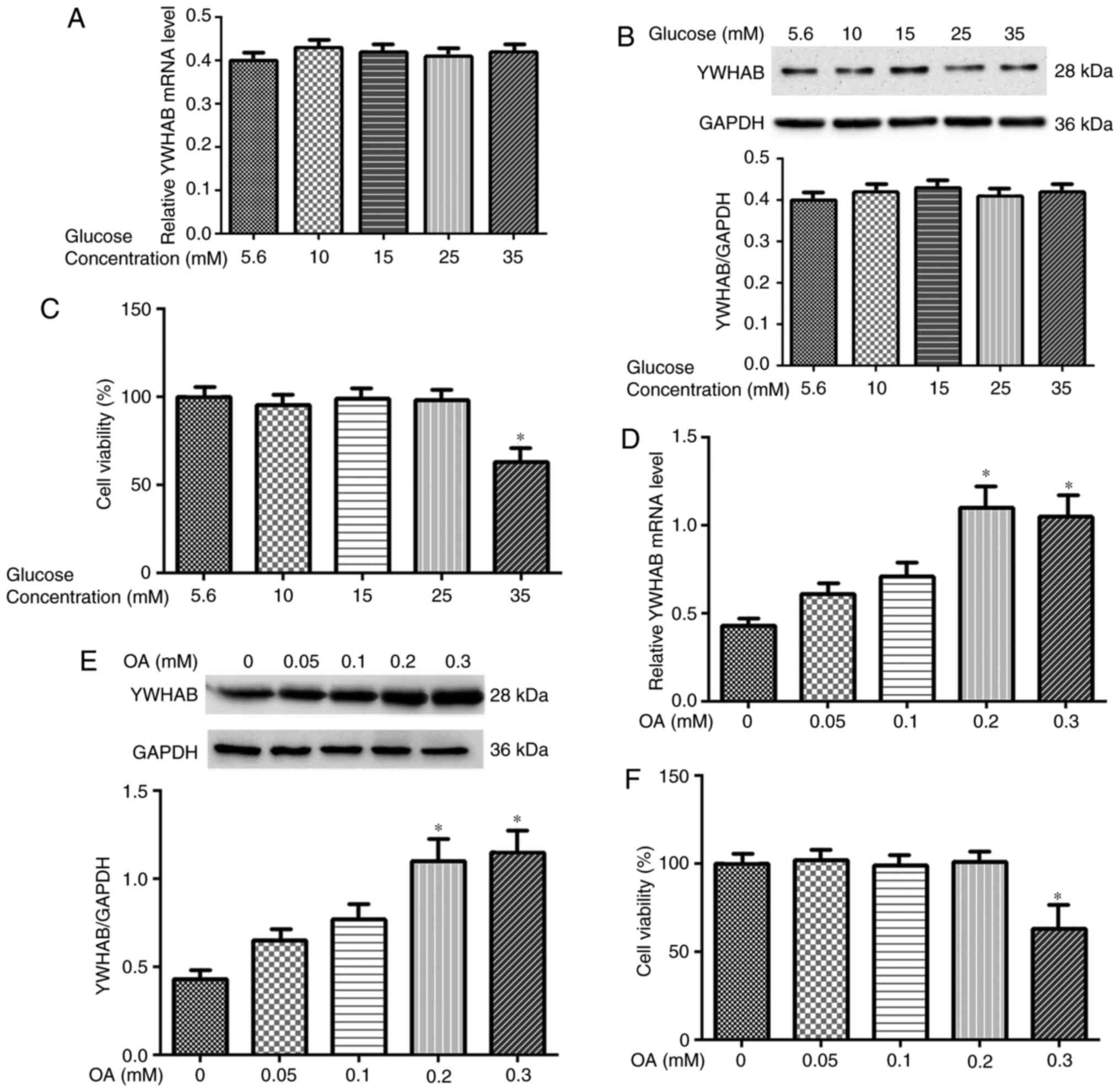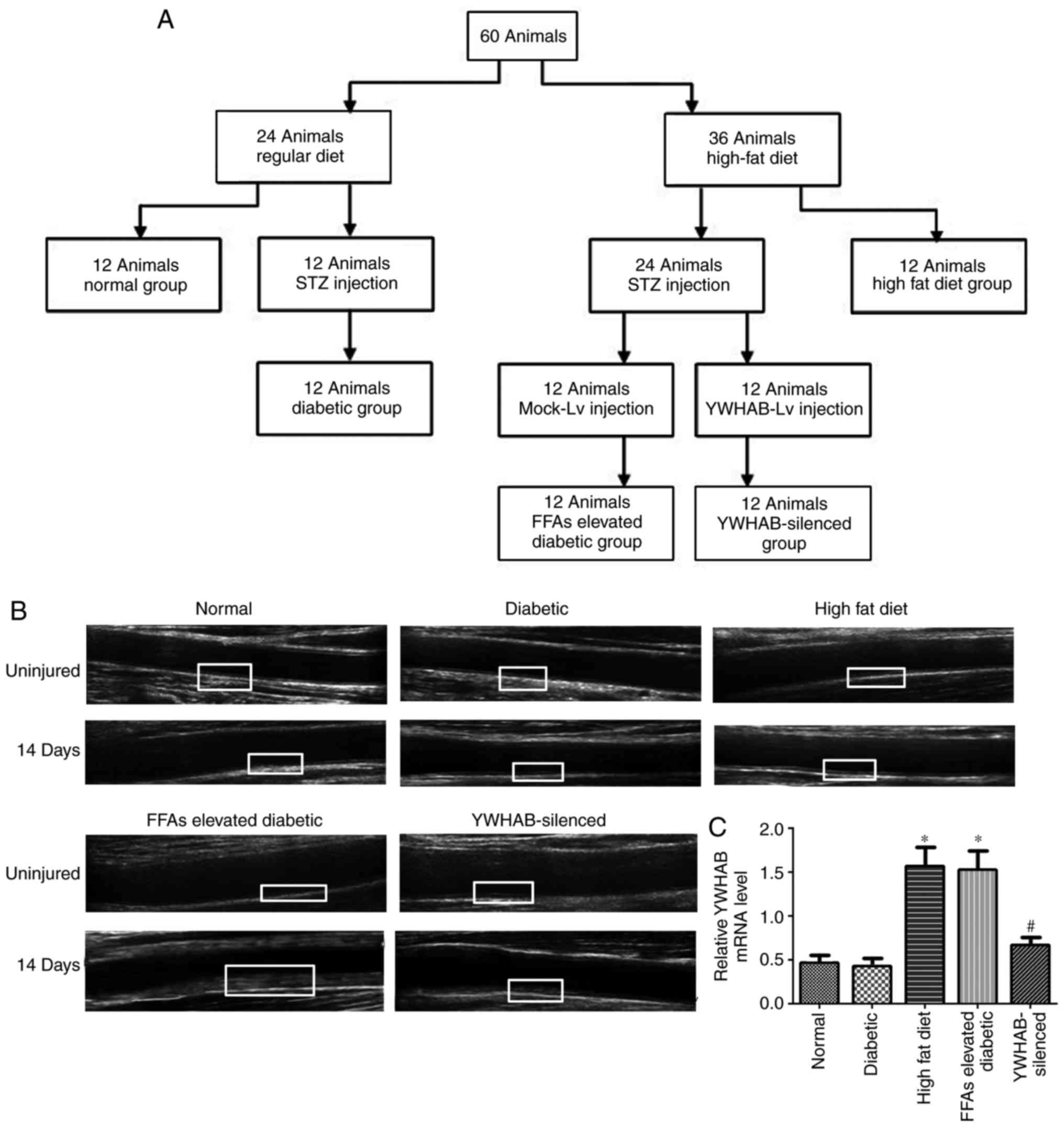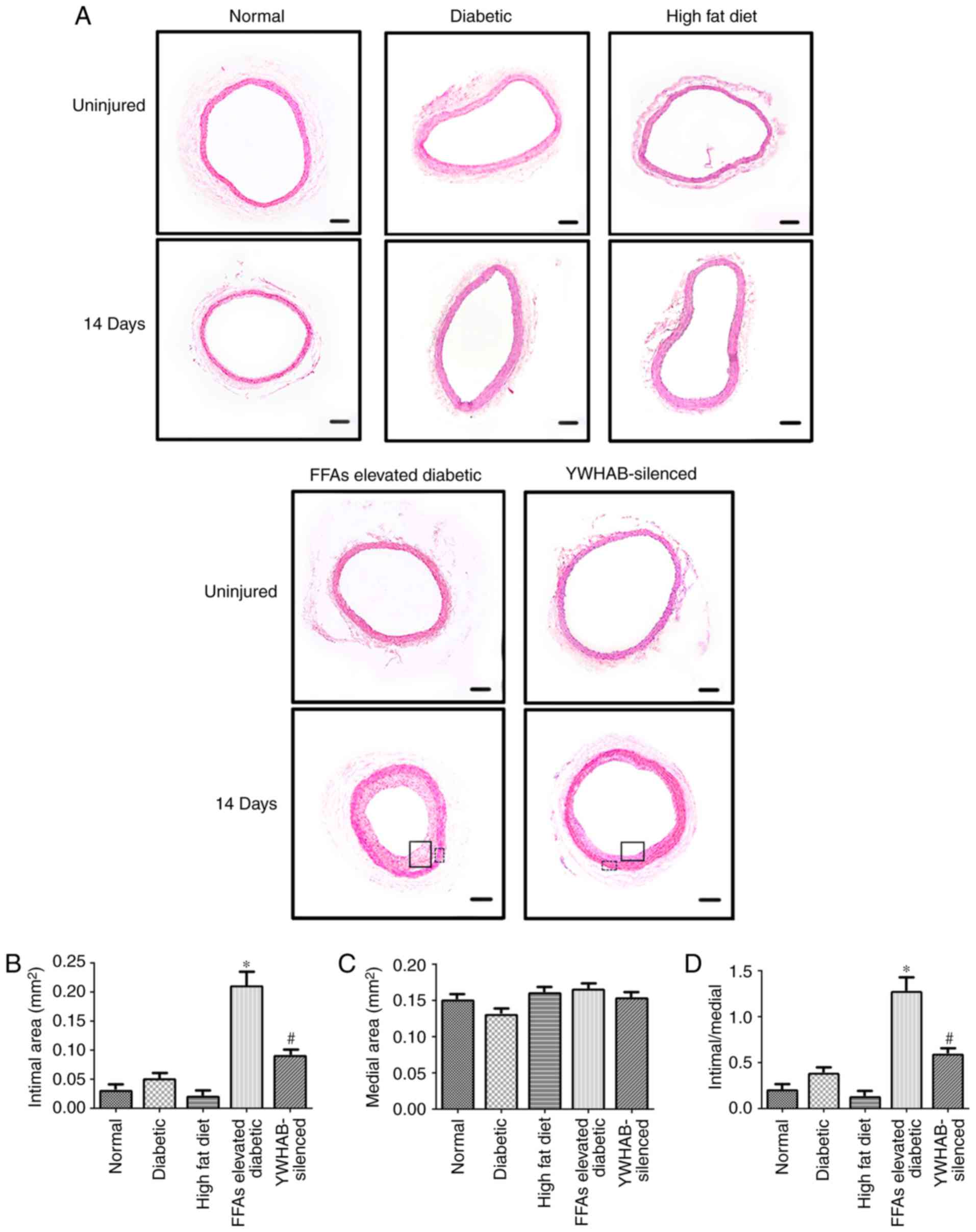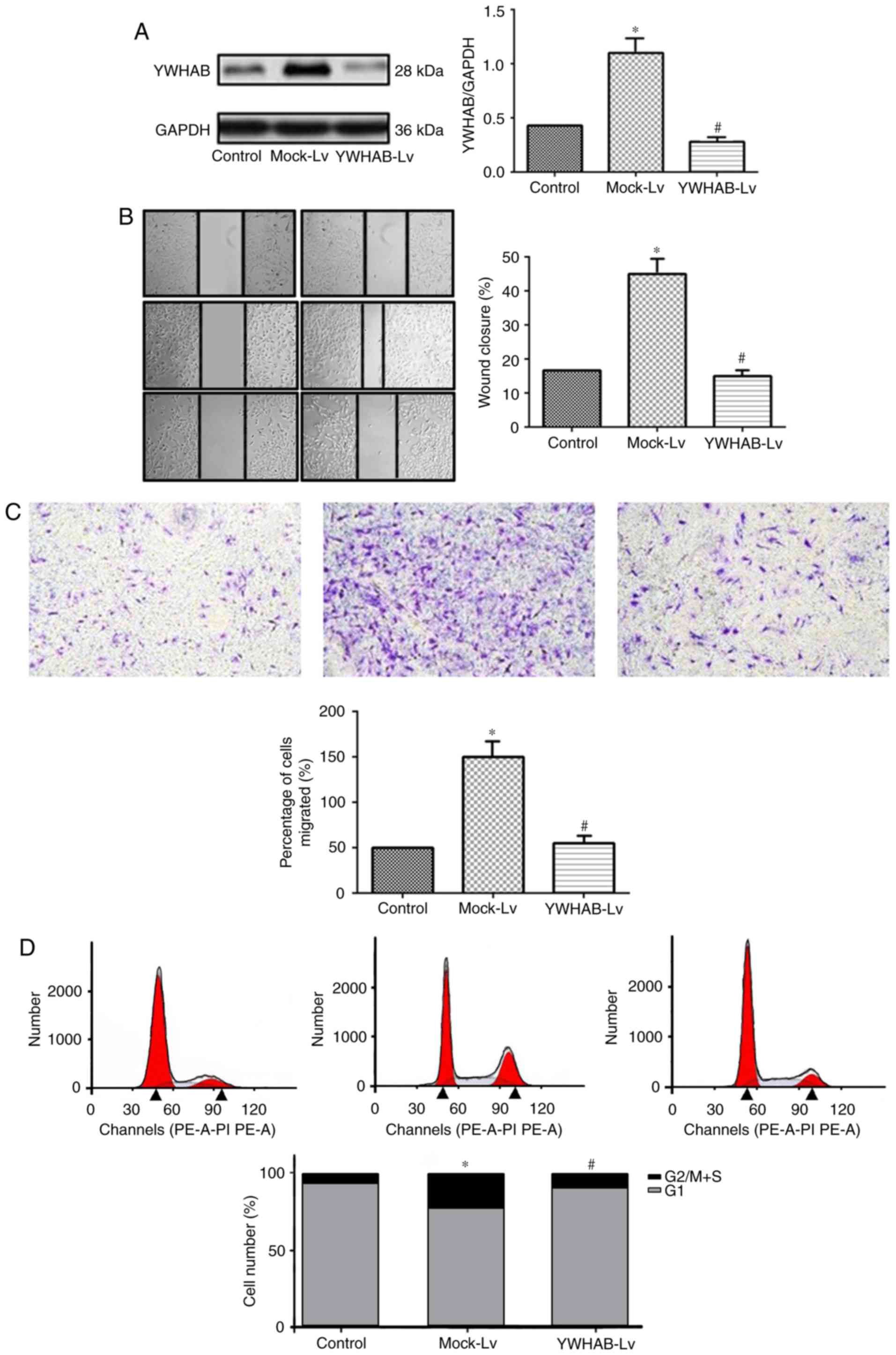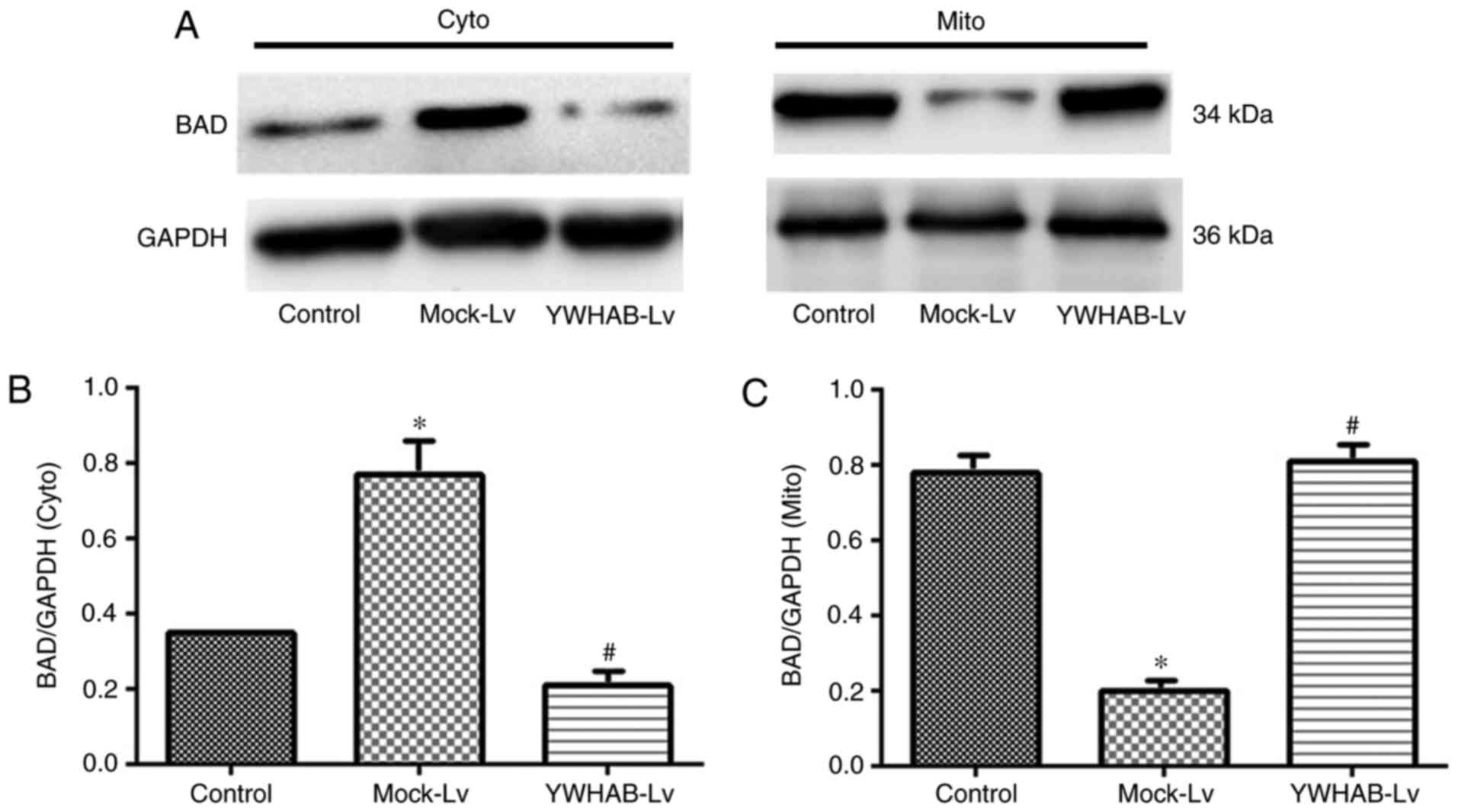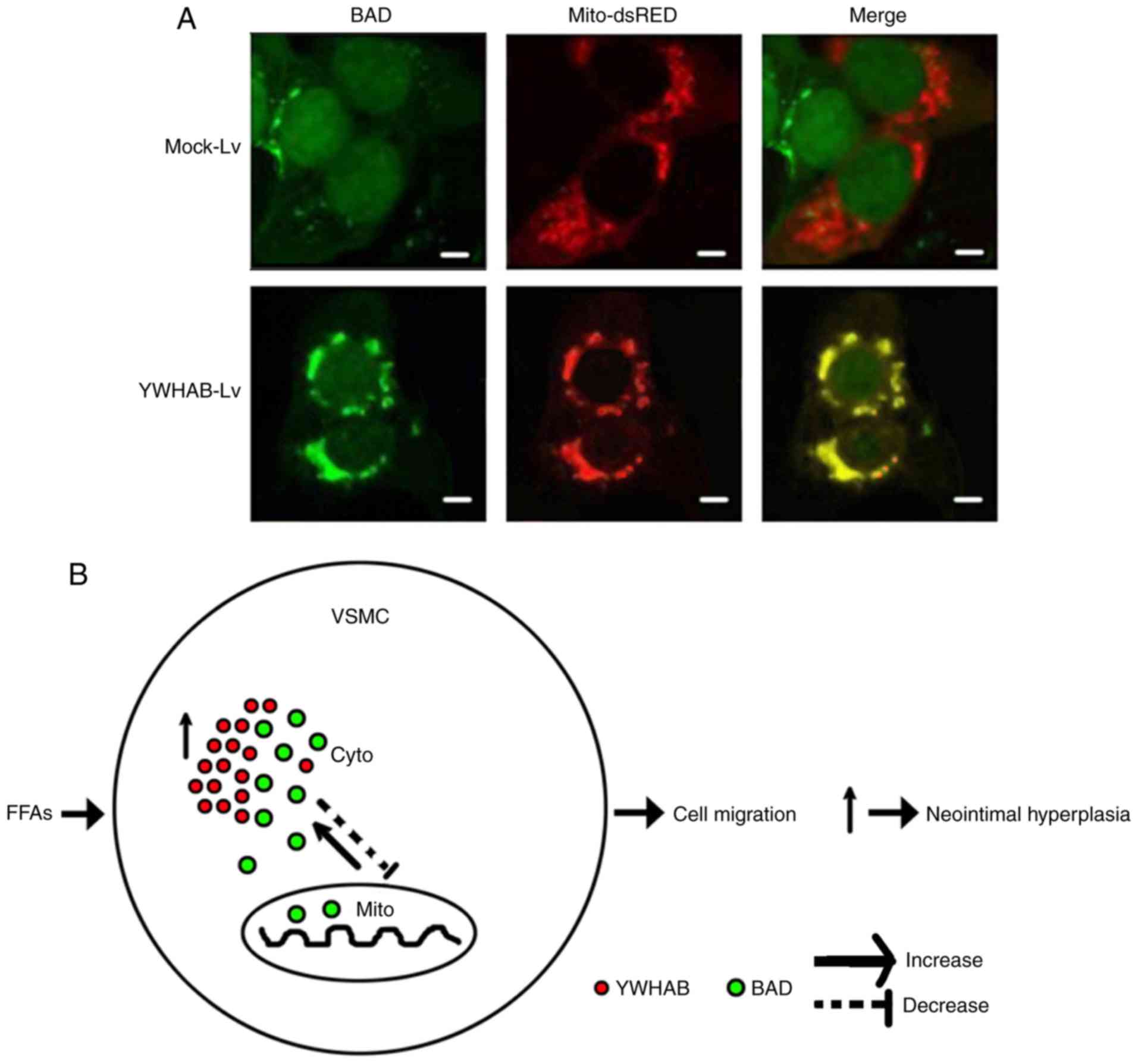|
1
|
Gong J, Fang K, Dong H, Wang D, Hu M and
Lu F: Effect of fenugreek on hyperglycaemia and hyperlipidemia in
diabetes and prediabetes: A meta-analysis. J Ethnopharmacol.
194:260–268. 2016. View Article : Google Scholar : PubMed/NCBI
|
|
2
|
Beckman JA, Creager MA and Libby P:
Diabetes and atherosclerosis: Epidemiology, pathophysiology, and
management. JAMA. 287:2570–2581. 2002. View Article : Google Scholar : PubMed/NCBI
|
|
3
|
Health Quality Ontario: Stenting for
peripheral artery disease of the lower extremities: An
evidence-based analysis. Ont Health Technol Assess Ser. 10:1–88.
2010.
|
|
4
|
Silva JA, Ramee SR, White CJ, Collins TJ,
Jenkins JS, Nunez E, Zhang S and Jain SP: Primary stenting in acute
myocardial infarction: Influence of diabetes mellitus in
angiographic results and clinical outcome. Am Heart J. 138:446–455.
1999. View Article : Google Scholar : PubMed/NCBI
|
|
5
|
Breen DM and Giacca A: Effects of insulin
on the vasculature. Curr Vasc Pharmacol. 9:321–332. 2011.
View Article : Google Scholar
|
|
6
|
Gao A, Cayabyab FS, Chen X, Yang J, Wang
L, Peng T and Lv Y: Implications of sortilin in lipid metabolism
and lipid disorder diseases. DNA Cell Biol. 36:1050–1061. 2017.
View Article : Google Scholar : PubMed/NCBI
|
|
7
|
Mathew M, Tay E and Cusi K: Elevated
plasma free fatty acids increase cardiovascular risk by inducing
plasma biomarkers of endothelial activation, myeloperoxidase and
PAI-1 in healthy subjects. Cardiovasc Diabetol. 9:92010. View Article : Google Scholar : PubMed/NCBI
|
|
8
|
Kuo SC, Lai SW, Hung HC, Muo CH, Hung SC,
Liu LL, Chang CW, Hwu YJ, Chen SL and Sung FC: Association between
comorbidi-ties and dementia in diabetes mellitus patients:
Population-based retrospective cohort study. J Diabetes
Complications. 29:1071–1076. 2015. View Article : Google Scholar : PubMed/NCBI
|
|
9
|
Ashino T, Yamamoto M, Yoshida T and
Numazawa S: Redox-sensitive transcription factor Nrf2 regulates
vascular smooth muscle cell migration and neointimal hyperplasia.
Arterioscler Thromb Vasc Biol. 33:760–768. 2013. View Article : Google Scholar : PubMed/NCBI
|
|
10
|
Nathan DM, Cleary PA, Backlund JY, Genuth
SM, Lachin JM, Orchard TJ, Raskin P and Zinman B; Diabetes Control
and Complications Trial/Epidemiology of Diabetes Interventions and
Complications (DCCT/EDIC) Study Research Group: Intensive diabetes
treatment and cardiovascular disease in patients with type 1
diabetes. N Engl J Med. 353:2643–2653. 2005. View Article : Google Scholar : PubMed/NCBI
|
|
11
|
Raines EW: PDGF and cardiovascular
disease. Cytokine Growth Factor Rev. 15:237–254. 2004. View Article : Google Scholar : PubMed/NCBI
|
|
12
|
Bennett MR: In-stent stenosis: Pathology
and implications for the development of drug eluting stents. Heart.
89:218–224. 2003. View Article : Google Scholar : PubMed/NCBI
|
|
13
|
Ma X, Jiang C, Li Y, Feng L, Liu J and
Wang J: Inhibition effect of tacrolimus and platelet-derived growth
factor-BB on restenosis after vascular intimal injury. Biomed
Pharmacother. 93:180–189. 2017. View Article : Google Scholar : PubMed/NCBI
|
|
14
|
Wajima D, Nakagawa I, Takamura Y, Aketa S,
Yonezawa T and Nakase H: Carotid artery stenosis is exacerbated in
spontaneously obese model rats with diabetes. J Atheroscler Thromb.
21:1253–1259. 2014. View Article : Google Scholar : PubMed/NCBI
|
|
15
|
Lin MC, Ou TT, Chang CH, Chan KC and Wang
CJ: Protocatechuic acid inhibits oleic acid-induced vascular smooth
muscle cell proliferation through activation of AMP-activated
protein kinase and cell cycle arrest in G0/G1
phase. J Agric Food Chem. 63:235–241. 2015. View Article : Google Scholar
|
|
16
|
Plotz T, Krummel B, Laporte A, Pingitore
A, Persaud SJ, Jörns A, Elsner M, Mehmeti I and Lenzen S: The
monounsaturated fatty acid oleate is the major physiological toxic
free fatty acid for human beta cells. Nutr Diabetes. 7:3052017.
View Article : Google Scholar : PubMed/NCBI
|
|
17
|
Feng L, Ma X, Wang J and Tian Q:
Up-regulation of 14-3-3beta plays a role in intimal hyperplasia
following carotid artery injury in diabetic Sprague Dawley rats by
promoting endothelial cell migration and proliferation. Biochem
Biophys Res Commun. 490:1237–1243. 2017. View Article : Google Scholar : PubMed/NCBI
|
|
18
|
Livak KJ and Schmittgen TD: Analysis of
relative gene expression data using real-time quantitative PCR and
the 2(-Delta Delta C(T)) method. Methods. 25:402–408. 2001.
View Article : Google Scholar
|
|
19
|
Lager S, Gaccioli F, Ramirez VI, Jones HN,
Jansson T and Powell TL: Oleic acid stimulates system A amino acid
transport in primary human trophoblast cells mediated by toll-like
receptor 4. J Lipid Res. 54:725–733. 2013. View Article : Google Scholar : PubMed/NCBI
|
|
20
|
Pedersen O, Kahn CR, Flier JS and Kahn BB:
High fat feeding causes insulin resistance and a marked decrease in
the expression of glucose transporters (Glut 4) in fat cells of
rats. Endocrinology. 129:771–777. 1991. View Article : Google Scholar : PubMed/NCBI
|
|
21
|
Qi H, Jing Z, Xiaolin W, Changwu X,
Xiaorong H, Jian Y, Jing C and Hong J: Histone demethylase JMJD2A
inhibition attenuates neointimal hyperplasia in the carotid
arteries of balloon-injured diabetic rats via transcriptional
silencing: Inflammatory gene expression in vascular smooth muscle
cells. Cell Physiol Biochem. 37:719–734. 2015. View Article : Google Scholar : PubMed/NCBI
|
|
22
|
Tsihlis ND, Rodriguez MP, Jiang Q,
Schwartz A, Flynn ME, Vercammen JM and Kibbe MR: Nitric oxide
differentially affects proteasome activator 28 after arterial
injury in type 1 and type 2 diabetic rats. J Surg Res. 202:413–421.
2016. View Article : Google Scholar : PubMed/NCBI
|
|
23
|
Castilla DM, Liu ZJ, Tian R, Li Y,
Livingstone AS and Velazquez OC: A novel autologous cell-based
therapy to promote diabetic wound healing. Ann Surg. 256:560–572.
2012. View Article : Google Scholar : PubMed/NCBI
|
|
24
|
Wang H, Weihrauch D, Kersten JR, Toth JM,
Passerini AG, Rajamani A, Schrepfer S and LaDisa JF Jr: Alagebrium
inhibits neointimal hyperplasia and restores distributions of wall
shear stress by reducing downstream vascular resistance in obese
and diabetic rats. Am J Physiol Heart Circ Physiol.
309:H1130–H1140. 2015. View Article : Google Scholar : PubMed/NCBI
|
|
25
|
Yang CP, Lin CC, Li CI, Liu CS, Lin WY,
Hwang KL, Yang SY, Chen HJ and Li TC: Cardiovascular risk factors
increase the risks of diabetic peripheral neuropathy in patients
with type 2 diabetes mellitus. Medicine (Baltimore). 94:e17832015.
View Article : Google Scholar
|
|
26
|
Hong SJ, Kim MH, Cha KS, Park HS, Chae SC,
Hur SH, Gwon HC, Bae JH and Lim DS: Comparison of three-year
clinical outcomes between sirolimus-versus paclitaxel-eluting
stents in diabetic patients: Prospective randomized multicenter
trial. Catheter Cardiovasc Interv. 76:924–933. 2010. View Article : Google Scholar : PubMed/NCBI
|
|
27
|
Tishko VV, Sokolov AA, Belskih AN, Ivanov
AM, Meshkova ME and Skorinova TS: Impact of double filtration
plasmapheresis on adhesion molecules levels in patients with stable
coronary heart disease after coronary stenting. Atheroscler Suppl.
30:92–98. 2017. View Article : Google Scholar : PubMed/NCBI
|
|
28
|
Plonka-Poltorak E, Zagrodzki P,
Kryczyk-Koziol J, Westermarck T, Kaipainen P, Kaski M and Atroshi
F: Does valproate therapy in epileptic patients contribute to
changing atherosclerosis risk factors? The role of lipids and free
fatty acids. Pharmacol Rep. 68:1339–1344. 2016. View Article : Google Scholar : PubMed/NCBI
|
|
29
|
Sun W, Huang Y, Yin T, Wang J, Du R, Qiu
J, Zhang Y, Wang Y, Chen J and Wang G: Effects of elemene on
inhibiting proliferation of vascular smooth muscle cells and
promoting reendothelialization at the stent implantation site.
Biomater Sci. 5:1144–1155. 2017. View Article : Google Scholar : PubMed/NCBI
|
|
30
|
Wilker E and Yaffe MB: 14-3-3 Proteins-a
focus on cancer and human disease. J Mol Cell Cardiol. 37:633–642.
2004. View Article : Google Scholar : PubMed/NCBI
|
|
31
|
Zhang Y, Li M, Wei L, Zhu L, Hu S, Wu S,
Ma S and Gao Y: Differential protein expression in perfusates from
metastasized rat livers. Proteome Sci. 11:372013. View Article : Google Scholar : PubMed/NCBI
|
|
32
|
Hartman AM and Hirsch AKH: Molecular
insight into specific 14-3-3 modulators: Inhibitors and stabilisers
of protein-protein interactions of 14-3-3. Eur J Med Chem.
136:573–584. 2017. View Article : Google Scholar : PubMed/NCBI
|
|
33
|
Shimada T, Fournier AE and Yamagata K:
Neuroprotective function of 14-3-3 proteins in neurodegeneration.
Biomed Res Int. 2013:5645342013. View Article : Google Scholar : PubMed/NCBI
|
|
34
|
Gou Q, Gong X, Jin J, Shi J and Hou Y:
Peroxisome proliferator-activated receptors (PPARs) are potential
drug targets for cancer therapy. Oncotarget. 8:60704–60709. 2017.
View Article : Google Scholar : PubMed/NCBI
|
|
35
|
Chen YC, Chu LY, Yang SF, Chen HL, Yet SF
and Wu KK: Prostacyclin and PPARα agonists control vascular smooth
muscle cell apoptosis and phenotypic switch through distinct 14-3-3
isoforms. PLoS One. 8:e697022013. View Article : Google Scholar
|
|
36
|
Chu LY, Liou JY and Wu KK: Prostacyclin
protects vascular integrity via PPAR/14-3-3 pathway. Prostaglandins
Other Lipid Mediat. 118–119:19–27. 2015. View Article : Google Scholar
|
|
37
|
Bindesboll C, Berg O, Arntsen B, Nebb HI
and Dalen KT: Fatty acids regulate perilipin5 in muscle by
activating PPARδ. J Lipid Res. 54:1949–1963. 2013. View Article : Google Scholar
|
|
38
|
Xu G, Wang J, Wu F, Wang N, Zhou W, Wang
Q, Pan W, Ao G and Yang J: YAP and 14-3-3γ are involved in
HS-OA-induced growth inhibition of hepatocellular carcinoma cells:
A novel mechanism for hydrogen sulfide releasing oleanolic acid.
Oncotarget. 7:52150–52165. 2016.PubMed/NCBI
|
|
39
|
Adachi M and Imai K: The proapoptotic
BH3-only protein BAD transduces cell death signals independently of
its interaction with Bcl-2. Cell Death Differ. 9:1240–1247. 2002.
View Article : Google Scholar : PubMed/NCBI
|
|
40
|
Tsuruta F, Masuyama N and Gotoh Y: The
phosphati-dylinositol 3-kinase (PI3K)-Akt pathway suppresses Bax
translocation to mitochondria. J Biol Chem. 277:14040–14047. 2002.
View Article : Google Scholar : PubMed/NCBI
|















